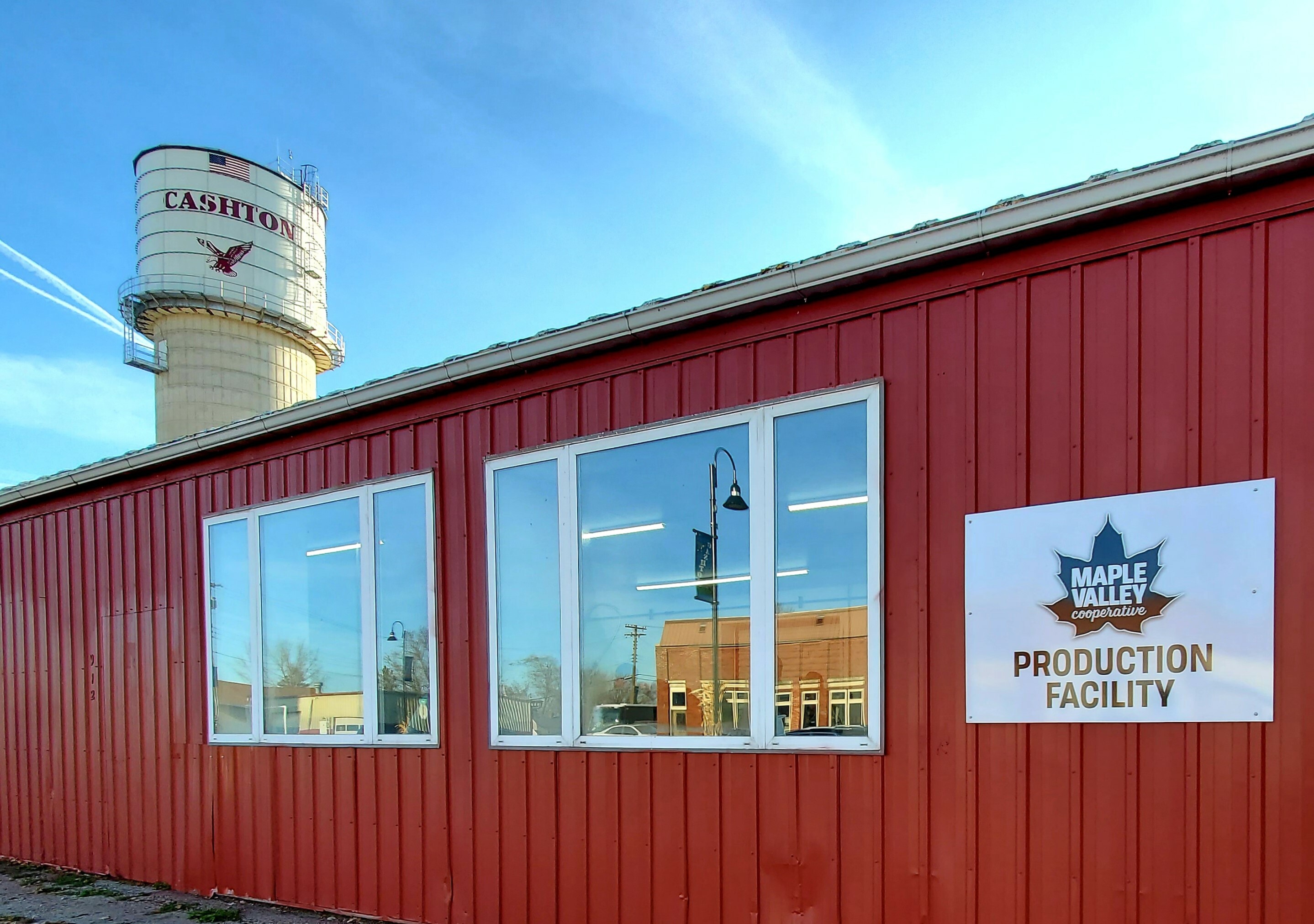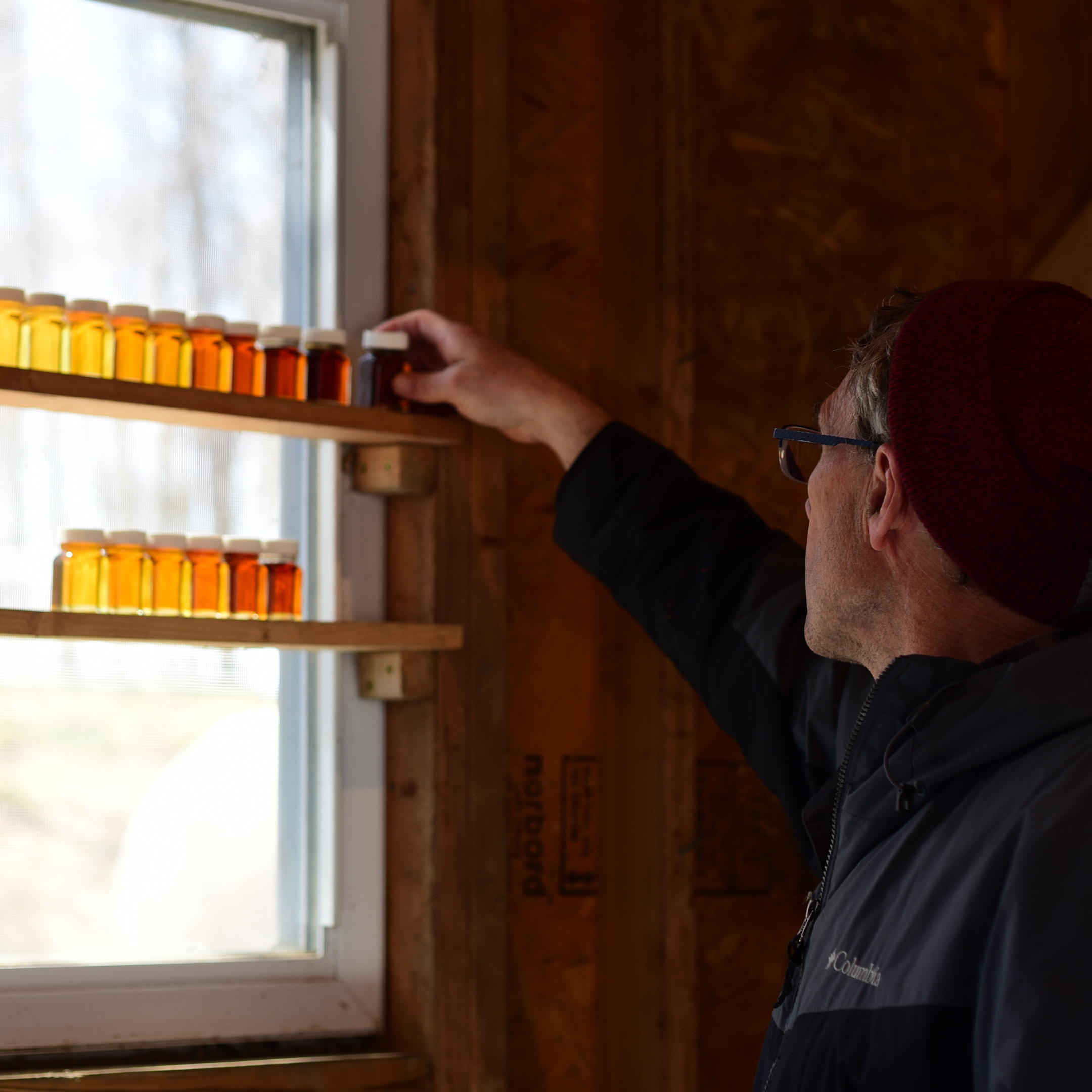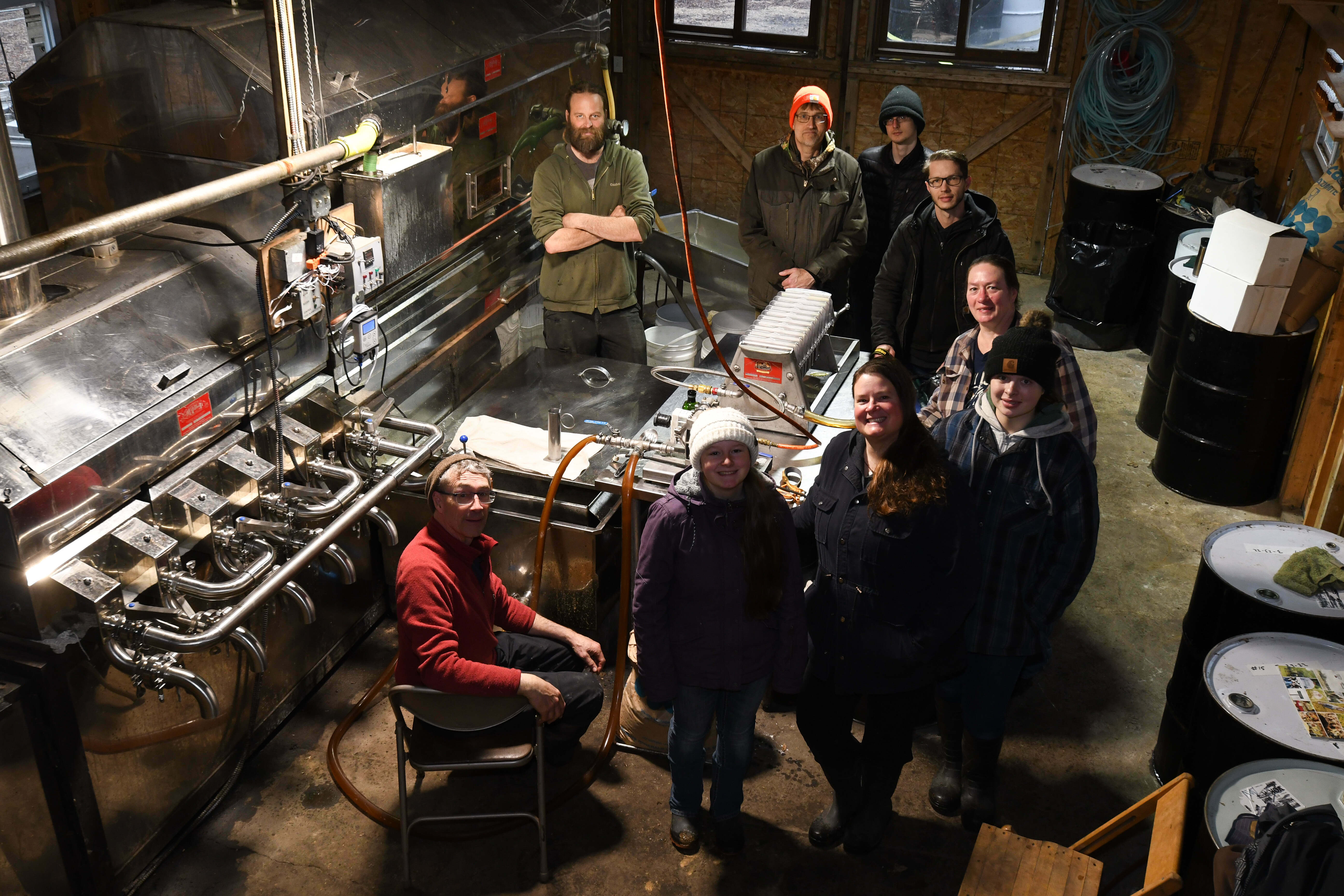Maple Valley Cooperative - Deep Roots in Sustainability

Maple Valley Cooperative
Deep Roots in Sustainability
By Joe Pedretti, Client Relations Director
“To understand the genesis of Maple Valley Cooperative we have to go back to the 1980s. I was living in Ohio at the time. I had recently moved to Columbus from my home farm, which was in northeast Ohio. In northeast Ohio, there's a lot of maple syrup production, so I had a culture of being aware of it and being involved. This region was as active as Vermont,” remembered Cecil Wright, founder and current President of Maple Valley Cooperative.
“I was shopping at Northwest Natural Foods in Columbus Ohio and they were complaining that they couldn't get maple syrup and I said, ‘well sure I can help you do that,’ and I just started finding maple syrup for them. I started going back and forth between Ohio and Northwest Pennsylvania to locate organic maple syrup producers. I quickly ran into other friends that were interested in doing this too, and I found other stores that were interested in having a supply of organic syrup. So a few friends and I decided to get serious, and to get better with our branding. The organic maple syrup industry was just very nascent.”
“I ran into a friend of mine, Bruce Peterson, who planted trees and had connections in the southeast. He helped us locate another 35 stores, so now we had a nice little side business selling maple syrup in the Midwest and in the Southeast. Another friend of ours, whose father Dan Churchill, was a maple farmer in Stanford, New York, became our anchor producer and processor. He helped us get better with our packaging and better with our marketing. He anchored the business for a long time for us,” noted Cecil.

“In 1997, I was in the process of moving to Wisconsin to work for Organic Valley where I was the Operations Manager and a member of their management team. I had to quickly find somebody in Wisconsin to help with the maple syrup processing. I found a local person to do that for us, and we rented a facility and continued our brand, which, at that time, was called Maple River. There was a trademark conflict with that name, so we transitioned it to Maple Valley soon thereafter.”
“By the early 2000s we were working with a lot more farmers from around the Midwest, and we even had a couple of farmers in Canada. We decided to create a co-op because I was familiar with co-ops from working with Organic Valley, and through the Viroqua Food Co-op. The Vernon County area is known for co-ops, so there's a lot of culture around it. I wanted Maple Valley to become a co-op, but one with more than a single class owner. I wanted it to be a co-op that had everybody in the supply chain as a member. We came up with the idea of creating five classes of membership: Farmers, Employees, Customers, Vendors, and Investors,” emphasized Cecil.
“It was a challenge for us to figure out how investors could be part of the Co-op. The state of Wisconsin rules allowed us to do that, but the Federal government had tax laws that made it more difficult. We worked with Rod McFall, who was a premiere co-op lawyer out of Minneapolis to help us navigate that problem. We created the right bylaws and articles of incorporation to allow that to happen. We are one of the first, if not the first, co-op to figure out how to have multiple membership classes.”
“There were periods of growth, and periods where there was not much growth. The organic maple industry had really taken off and passed us up during the 90s and early 2000s. It was just a pastime for us. Then, when the new organic law came into play, the organic industry exploded. Maple Valley Cooperative did not ride the initial wave, but we did later. We've grown substantially since becoming a co-op in 2007. We were around $300,000 in sales then, and we’ll be pushing $4.5 million in 2022.”
“When I moved to Wisconsin, I bought 40 acres and became a maple farmer. I had other farmers that joined me from there as we continued to grow. Many Amish farmers, and other producers in the area started to join us. We now have a pool of nearly 60 farmer members tapping trees in Wisconsin, Minnesota, Michigan, Ohio, Pennsylvania, New York and Vermont.. We also added a second processing plant in Vermont and have bought and opened a new processing facility in Cashton, Wisconsin in 2022,” said Cecil.
“We just outgrew the old facility in Cashton. When the building came up for sale across the street from us, it was an easy decision. We needed a facility that we could add on to over time, so the goal was to set up an infrastructure that will allow us to expand as we grow. At the previous facility we were bottling roughly 500 gallons a week. Now, we're doing about 1,000 to 1,200 gallons a week. Our tank capacity has tripled. Our bottling capacity is 12 times faster now. We have improvements all across the board, including energy efficiency and automation,” stressed Justin Cain, the Cooperative’s Operations Manager.
“We've been fortunate to hire really good people in the Cashton area. One of the questions I always ask in my interviews is, ‘what does organic mean to you?’ I'm really looking for people that can embrace the organic philosophy and what we do since we all are 100% organic. We now have 15 staff, including a remote sales and marketing team.”
“Our basic sales strategy has been to focus on the independent organic and natural food stores and co-ops. That's all starting to blend and change, and there's a lot of what I'll call ‘independent chains’ with two or three stores to ten stores that we're focusing more on now, and we’re having success. There's always been a principle of co-ops helping co-ops, or co-ops buying from co-ops, and we've been trying to promote and encourage that and to educate other co-ops around the idea that we can create more success together,” said Cecil.
“We're working on expanding our distribution through natural foods distributors like United Natural Foods and KeHE. Mainly because our co-op base likes them and we've brought on a national sales manager and sales staff who understand how to work with them. We also have a very strong cadre of smaller independent distributors that have really been important to the business. Our sales also include the bulk, food service and the ingredient market. We're always trying to figure out how we can sell maple syrup as an ingredient and we've had some really good success selling to other food processors,” observed Cecil.
“Ecommerce is becoming more important to our business, and we are competent at it, but there's a lot to learn. We know how to deliver and get it out the door, but we're learning, like everybody else, how to bring customers in through those platforms. We're selling on Amazon.com, Walmart.com, Faire.com, Instacart, and our own website, of course.”
“We have experienced massive growth over the last three years because of Covid. I believe it really went through the roof because we were able to deliver during Covid. We're coming out of that heady, busy growth period into a new phase with an economy that's down, and people are looking for value. So we're trying to pivot ourselves, and reevaluate where our focus is. We have always been about the highest quality syrup. We are a co-op. We believe in sustainability. We want consumers to understand the nutritional values of maple syrup, but we’re recognizing that maybe people are interested in bulk and in good value too,” noted Cecil.
“The pandemic brought people back to cooking and baking and making things with whole foods. But now they're not home as much and they're getting pinched financially, and so they're making choices. We have to figure out how to stay at the forefront of being that delicious, good for you super food sweetener that they can cook and bake with all the time, and know they are getting an exceptional product for the price they are paying,” emphasized Michelle Pedretti, the co-op’s Marketing & Communications Manager.
“We've been fortunate in the last couple of years to really bring on a bunch of new organic producers, and that's one of my favorite parts of my job. Guiding them on that process and then bringing them on as an organic farmer is a really cool thing. We're cautious about bringing on too many farmers because we want to honor our commitments to existing producers, but it seems like we're always looking. Anybody from Minnesota would rise to the top of the prospect list right now. We have customers that would like that representation,” stressed Justin.
“I can guide farmers through the basics of certification and assist them with any needs that may arise, but most often I will direct them to work with MOSA. I think working with them has been really easy compared to some other certifiers. I just had a farmer go organic last year and he said the process was a breeze.”
Maple Valley Cooperative bottles both Grade A Amber & Rich and Dark & Robust syrup in a variety of sizes including bulk. They also produce maple sugar, maple candy and launched a 12.68 fl oz bottle of “Sugarmaker’s Select” Whiskey Barrel-Aged syrup in 2021.
To learn more about the cooperative, maple syrup production, and discover new recipes using maple, visit them at: Maple Valley Co-op


